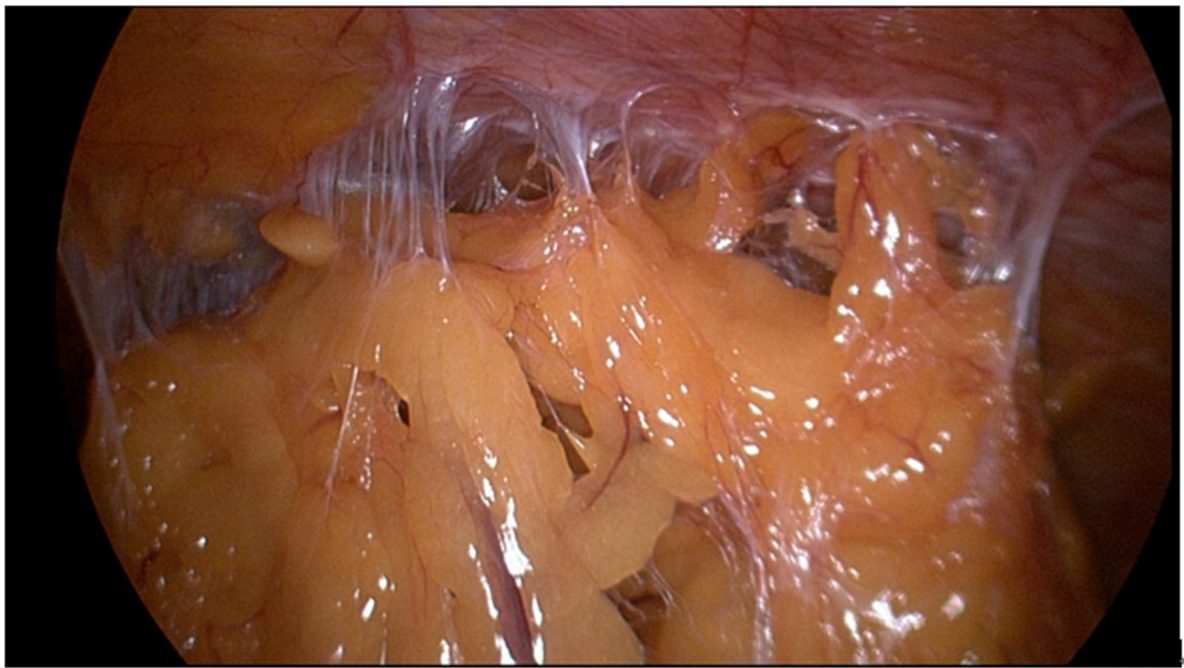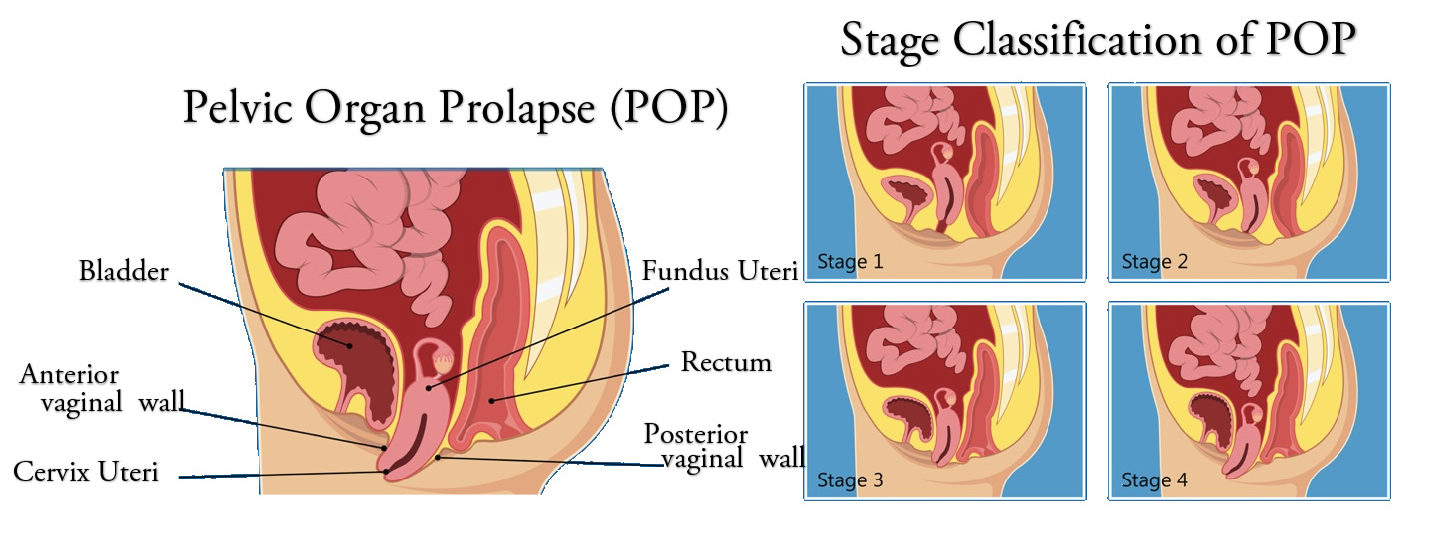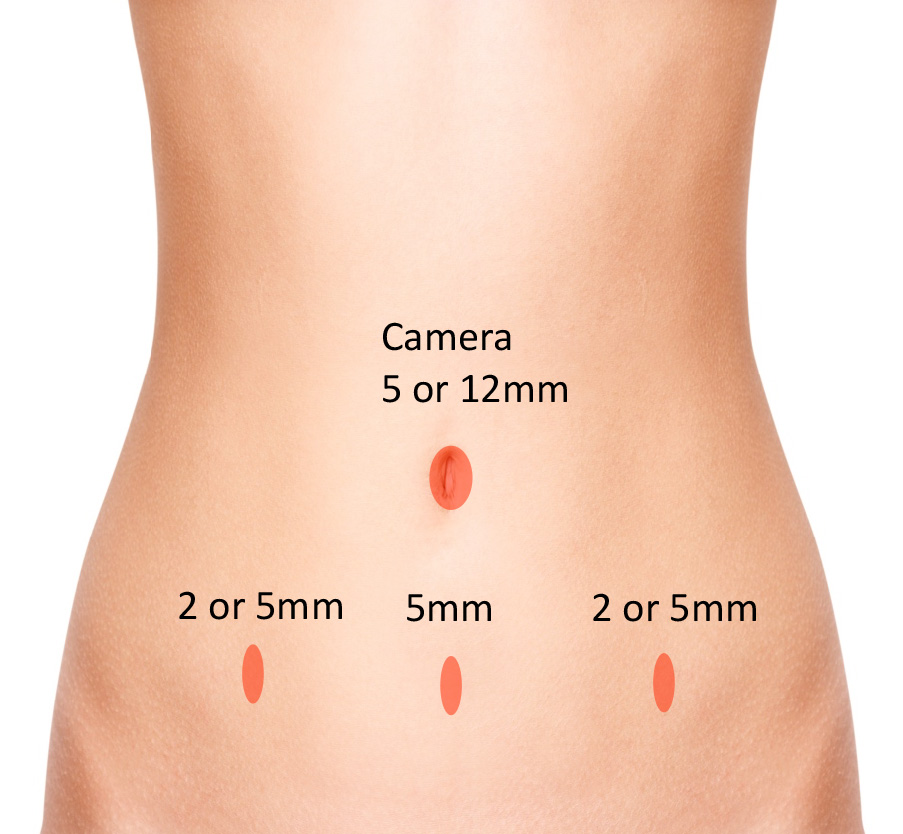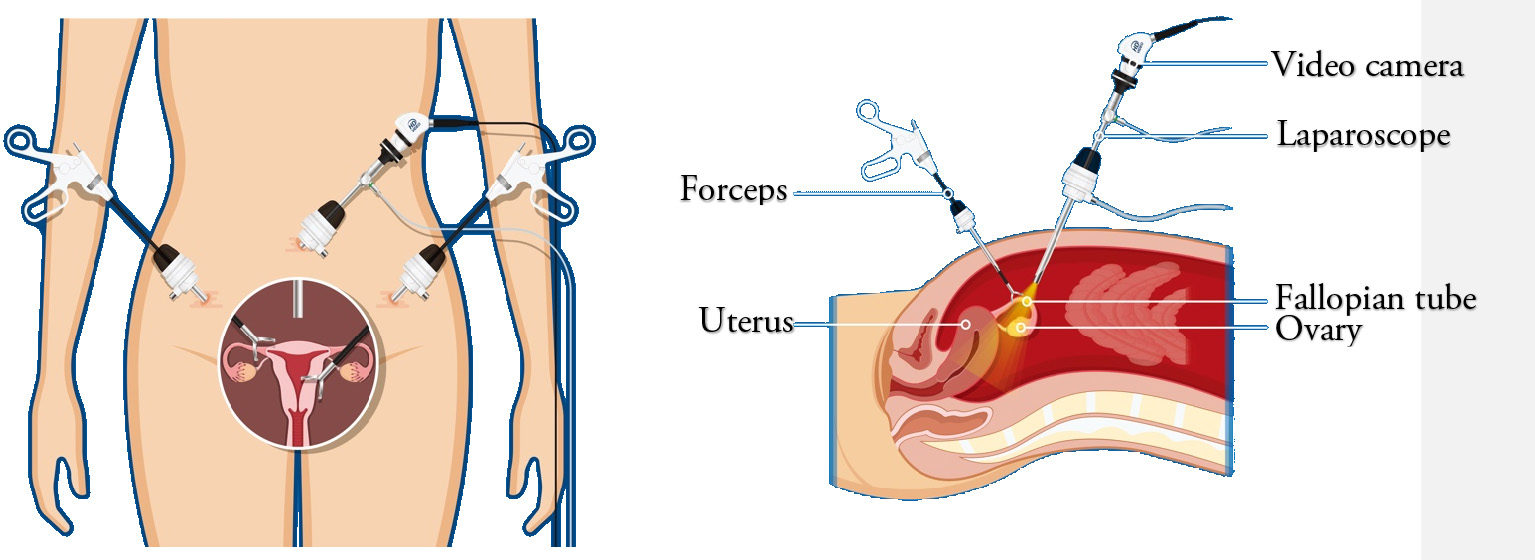For those who wish Gynecological minimal invasive surgery
Whether laparoscopic surgery is performed safely for advanced diseases (large, deep lesion, wide range or severe adhesion to multiple organs) depends on the skill. We can perform laparoscopic surgery for most gynecological benign diseases.We provide high-quality surgery by doctors who are certified by the Japanese Society of Obstetrics and Gynecology and Japan Society of Endoscopic Surgery, and have been certified as technical experts in Japan.
 (Severe adhesion inside pelvis)
(Severe adhesion inside pelvis)
Uterine Fibroid (= leiomyoma uteri)
Laparoscopic uterine fibroid enucleation (surgery to remove the uterine fibroids and preserve the uterus) is performed if the uterus is desired to be preserved, and laparoscopic total hysterectomy is required if radical surgery is needed. There are no particular restrictions on the size or number of fibroids at this hospital. So, please consult us to determine which type of treatment is the best for you. Generally, uterine fibroid enucleation has a longer surgery time, increased blood loss during operation, and increased risk of postoperative rebleeding compared with total hysterectomy. We recommend you to fully understand the curability of the disease and the risk of complications before deciding which surgery to choose.
Ovarian tumor, Ovarian cyst
Depending on the type, size of the tumor and on patient’s age, whether only the tumor may be removed (ovarian cystectomy) or the entire ovary and fallopian tube may be removed (adnexal resection) are proposed. Please refer your doctors which method is appropriate for you.
Endometriosis
Endometriosis is common in young women and can cause menstrual pain, pain during intercourse, defecation pain, chronic pelvic pain, and infertility. In endometriosis, adhesions around the uterus (attachment of the rectum, ureter, bladder, etc. to the uterus and ovaries) are often found, which makes surgery extremely difficult. In our hospital, laparoscopic surgery is frequently and actively performed in patients with severe adhesions.
Pelvic Organ Prolapse (POP)
Pelvic organ prolapse is a disease in which the uterus, bladder, and/or rectum are drooping. Our hospital can also perform laparoscopic surgery using mesh for such disease.

“First of all, please refer the doctors of our facility whether your stage of condition requires surgery and whether laparoscopic surgery can be performed. We will thoroughly evaluate your medical condition and provide a variety of options and propose the most appropriate treatment method for you.”
Procedures of Laparoscopic surgery
Firstly, make the 0.5-1.0cm incision and place a trocar on the navel, and the laparoscope is inserted through the trocar.
Then, three 0.2-0.5cm incisions are added to the lower abdomen, and the operation forceps are put and the operation is performed.
Most surgeries can be performed with less than four small incisions. Wounds are hardly noticeable after the operation.
As for admission and discharge, you are usually hospitalized on the day before the operation date and discharge two to four days after the operation.


Pros and cons of Laparoscopic surgery
Laparoscopic surgery has the advantage of small wound, less pain, and superior in view of cosmetic aspects compared to open surgery. But laparoscopic surgery is technically difficult because it is an operation performed under a special environment such as loss of tactile sensation or loss of deep sensation, and complications tend to be more likely compared to abdominal surgery.
Nevertheless, the reasons why laparoscopic surgery is preferably performed in our hospital are:
Laparoscope allows surgeons to get the close, clear and enlarged view of deep inside pelvis. Moreover, the use of thin forceps of various shapes instead of the hand makes it possible to perform very fine operations that are difficult to perform in the actual hand operation. In addition, laparoscopic surgery does not require the tummy to open, so the intestinal tract is not exposed to the outside air, and the rate of postoperative complications such as intestinal obstruction occurs is low.
We are looking forward to seeing you and will provide you the best supportive treatment.
Warmest regards
Nerima General Hospital Obstetrics and Gynecology

